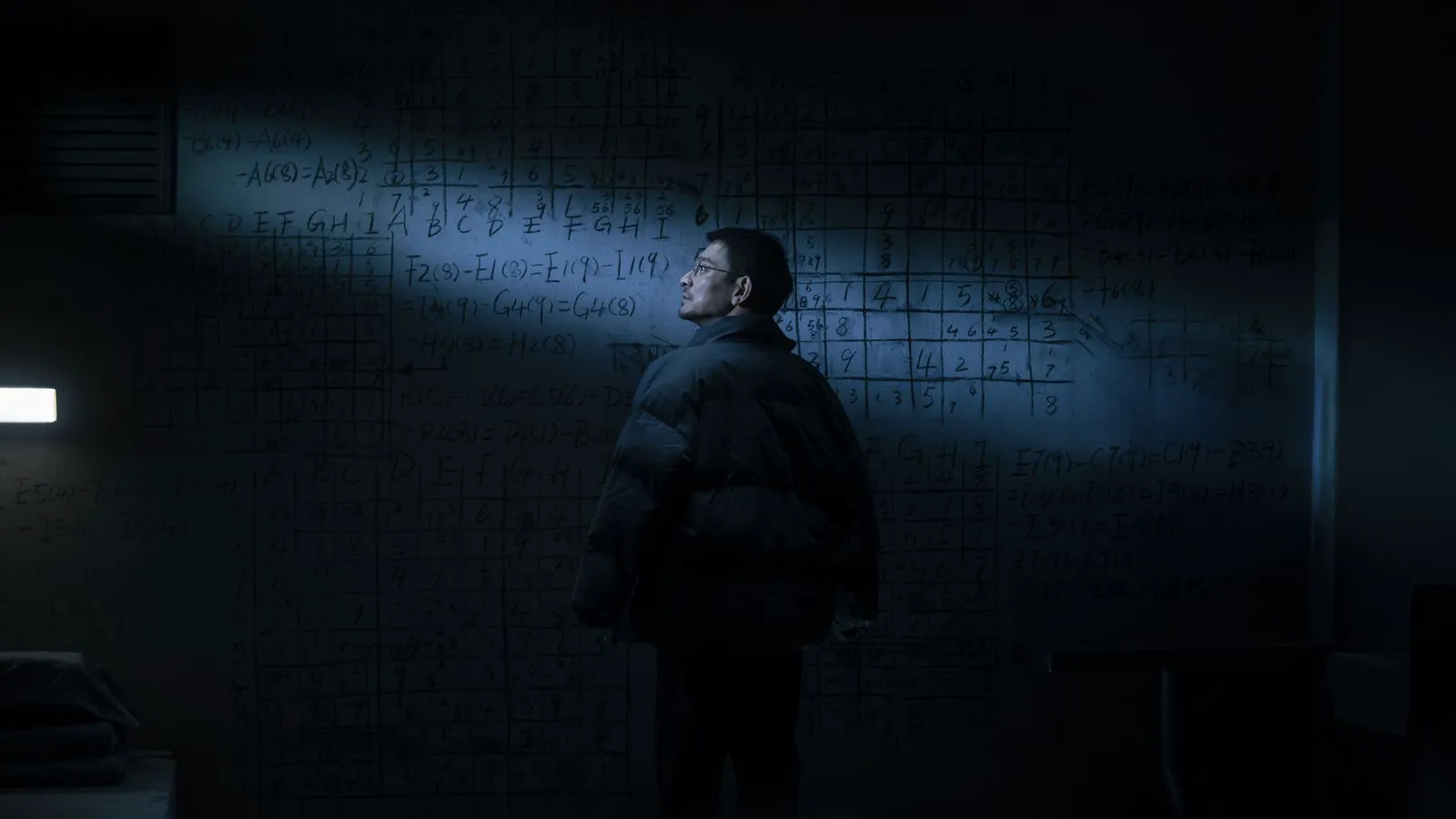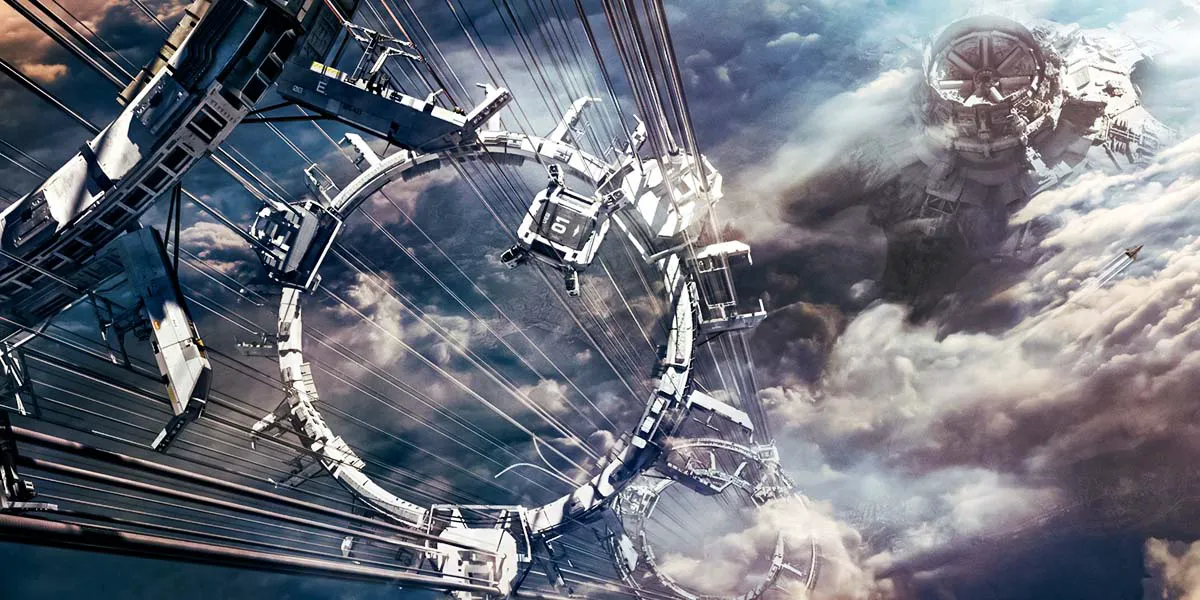The Wandering Earth 2: A Prequel of Epic Proportions
In 2019, the sci-fi thriller “The Wandering Earth” took the box office by storm, even surpassing “Avengers: Endgame” in domestic earnings. With a modest budget by Western standards, it achieved tenfold returns. This success, coupled with positive reviews, paved the way for a full-fledged franchise.
“The Wandering Earth 2,” while chronologically the second film, serves as a prequel, setting the stage for the entire saga. The story unfolds 40 years before the events of the first film. Humanity has determined that in 100 years, the Sun will become a red giant, engulfing Earth. Overcoming internal conflicts, the world unites to build 10,000 ion engines, aiming to move the planet out of the Solar System and towards a new home in Alpha Centauri.

Scene from “The Wandering Earth 2”
Challenges and Heroes
During this global construction project, the United Earth Government (UEG) faces two major challenges: terrorists opposing the planet’s relocation and advocating for the revival of the digital life program (transferring human consciousness into a digital environment), and the Moon. While the former is dealt with through conventional means, the Moon requires a more creative solution, as its gravitational forces could tear Earth apart during the initial movement. Giant engines are also constructed on the Moon, overseen by artificial intelligence, to push it away from Earth.
Overseeing these global processes are key Chinese figures: the wise UEG representative Zhou Zhezhi (Li Xuejian), the young and courageous pilot trainee Liu Peiqiang (Jackie Wu), and the artificial intelligence specialist Tu Hengyu (Andy Lau). Each character plays a crucial role in the overarching narrative, while also grappling with personal struggles. Liu Peiqiang finds the love of his life, Tu Hengyu seeks to prolong the digital existence of his daughter who died in a car accident, and Zhou Zhezhi is confined to a wheelchair due to immense international pressure.

Scene from “The Wandering Earth 2”
Liu Cixin’s Influence
Like its predecessor, “The Wandering Earth 2” is based on a novella by Liu Cixin, a prominent figure in contemporary Chinese science fiction. His works have gained international acclaim over the past two decades, despite his own belief that their success is accidental. Liu Cixin’s stories often revolve around the theme of national unity in the face of global threats, whether aliens or a rogue Sun, with individual character arcs serving to highlight commitment to common goals. His books have become increasingly popular among filmmakers, with at least three novels slated for adaptation in the near future. From a short novella, the creators of “The Wandering Earth” have crafted a megalomaniacal epic spanning three films (with a third installment officially in development).
Scale and Spectacle
“Colossal,” “gigantic,” “titanic” – these are fitting adjectives to describe “The Wandering Earth 2.” Everything is designed for maximum scale. The screen is filled with massive ion engine structures that dwarf the China Zun skyscraper. A space elevator stretches from the planet’s surface into the blackness of space, transporting cargo and astronauts to a local version of the ISS, which is, of course, many times larger. The camera frequently soars into the stars, showcasing the Earth and Moon as mere specks against the backdrop of the enormous, malevolent Sun. Even the fates of the main characters are insignificant drops in the ocean of the Common Cause and the Global Plan, further emphasizing the grand scale of events.
The Downside of Grandeur
However, the film’s problems lie in this very scale. The constant pressure of the grand scope eventually becomes counterproductive. The layered narrative of constant crises that the characters must heroically overcome quickly becomes tiresome. The abundance of visual effects (admittedly impressive, take note, Marvel) is initially captivating, but the constant flurry of particles and colliding planets becomes overwhelming towards the end. Due to the extended timeline (40 years is a significant period) and geography (the action jumps between Earth, the Moon, the ISS, and back), the viewer is constantly bombarded with subtitles: “3 years until engine launch,” “15 minutes until the Moon stall incident,” and so on. These textual explanations rob the viewer of any sense of surprise, as we know in advance that the crisis will be averted, and the characters literally explain how they plan to overcome the catastrophe before taking action.
The experience is akin to watching a mockumentary on the History Channel, but with a Hollywood budget and bombastic speeches instead of a narrator. Yet, the pathos of “The Wandering Earth 2” doesn’t feel out of place, as it does in the works of Emmerich or Bay. The characters genuinely believe in the importance of their mission and remind the viewer, even in the face of Armageddon, that it is all for the sake of future generations.

Scene from “The Wandering Earth 2”
Themes and Echoes
In its themes of legacy and the need to make way for the younger generation, “The Wandering Earth 2” resembles another recent megalomaniacal blockbuster sequel, “Avatar: The Way of Water.” Both films promote the idea of universal unity against an external threat and the importance of saving the younger generation in times of crisis: who else will rebuild what the old folks have broken? The difference lies in the fact that James Cameron’s new-age eco-project stops where “The Wandering Earth 2” is just beginning to gain momentum, which brings us back to the scale of the picture. The deaths of hundreds of thousands are put on the line for the survival of all humanity, and the film does not answer the question of where the point of no return lies, when sacrifice for the sake of good turns into genocide.
Conclusion
In conclusion, “The Wandering Earth 2” suffers from “sequel syndrome.” Everything has become bigger, more beautiful, more bombastic, and more powerful, but in the process of enlargement, the soul has been lost somewhere. It’s as if the advanced artificial intelligence MOSS has broken into the reality of “The Wandering Earth” to personally work on the next film. As a result, the story of humanity’s victory feels inhumanly sterile.